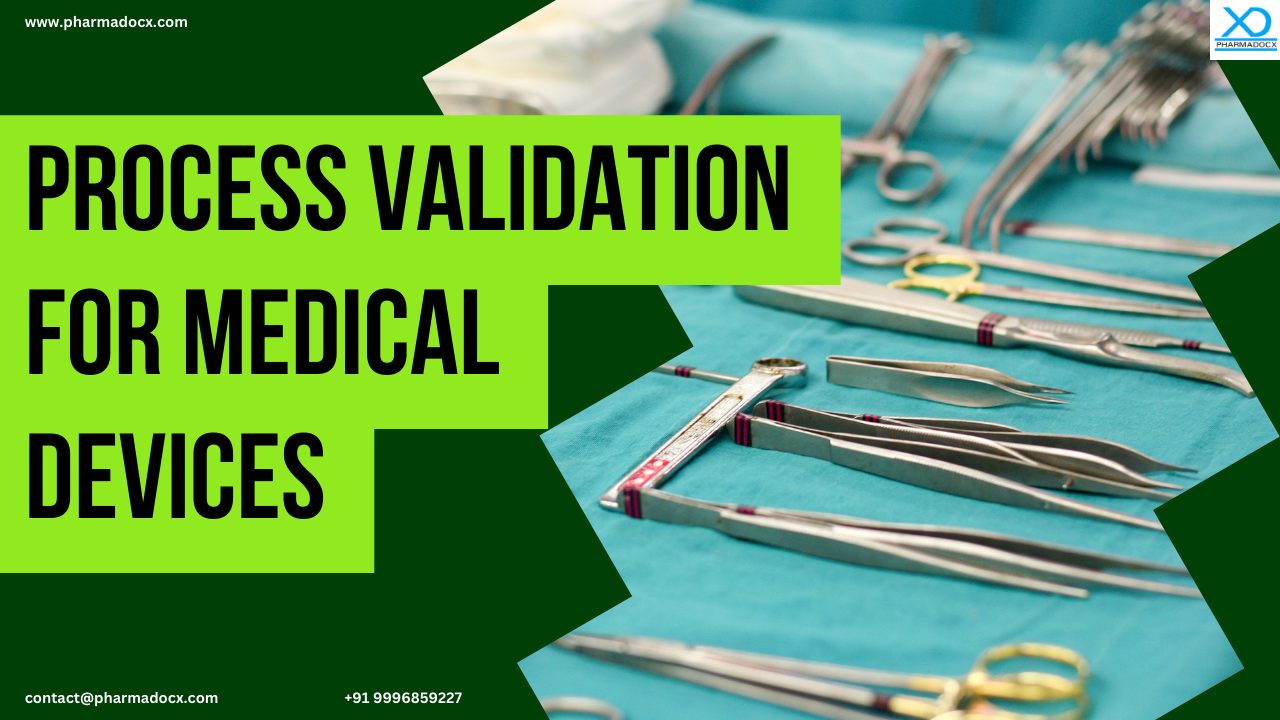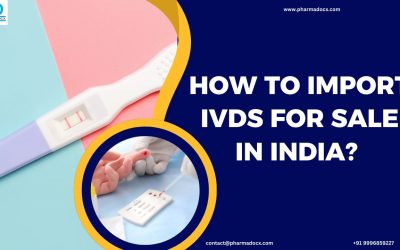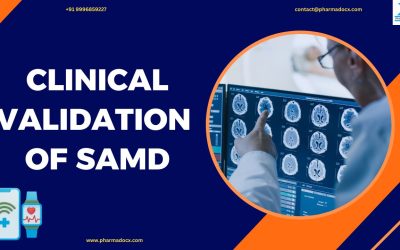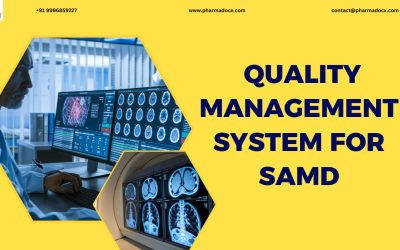Process validation for medical devices is performed to demonstrate the finished product will consistently meet quality specifications and user requirements. Hence, regulatory authorities require manufacturers to perform process validation to demonstrate their finished product meets the set regulatory standards. Moreover, medical device process validation is not only a regulatory requirement but also has benefits for the manufacturers. It assures them the manufacturing process in place will be able to deliver devices meeting user and market requirement specifications. In this blog, we have discussed what is process validation for medical devices and highlighted its importance.
What is process validation for medical devices?
Regulatory bodies require medical device manufacturers to confirm whether the finished medical device meets the set regulatory benchmark. To ensure this, manufacturers need to test the medical device being manufactured. However, testing every single device being manufactured is not possible. Also, in some cases testing the device will destroy it or it cannot be reused.
Therefore, process validation for medical devices is carried out. It is the process of establishing documented evidence that the medical device manufacturing process is capable of consistently producing devices meeting its predetermined specifications and quality attributes. Medical device process validation is a regulatory requirement. It is performed to ensure the quality, safety and efficacy of the medical device throughout its life cycle. The scientific evidence proving the manufacturing process is capable of consistently manufacturing high-quality products has to be properly documented. The validation process involves collecting data from the manufacturing process design stage till the production stage. The data collected is thoroughly evaluated. Thus, process validation for medical devices is an important aspect of quality assurance.
4 major types of medical device process validation
Depending on the medical device production stage, multiple types of process validations are carried out.
- Prospective validation: Validation is performed during development of medical devices prior to production.
- Concurrent validation: The first three batches of medical devices produced at mass production scale are validated.
- Retrospective validation: In this case, validation is performed retrospectively by collecting data. The data is used to confirm whether the manufactured medical devices comply with the regulatory requirements.
- Revalidation: It is the process of repeating the original validation procedure to check whether the validation status is consistent.
We have highlighted the major types of medical device process validation.
5 key roles of medical device process validation
Validation is a critical part of quality management in the medical device industry. The medical device industry is highly regulated. Therefore, performing process validation for medical devices is a mandatory requirement of many regulatory bodies. Medical devices companies are expected to prioritise product quality and patient safety. Process validation ensures the medical devices which are being manufactured will perform safely and effectively.
- Medical device process validation provides documented evidence that appropriate quality assurance tests have been performed to assess the manufacturing process.
- A thorough validation process assures the manufacturing process will consistently deliver safe medical devices. The devices manufactured will be able to impart medical benefits and meet user needs as well as comply with regulatory requirements.
- Medical device process validation ensures the medical devices will effectively perform as intended.
- Process validation for medical devices has to be mandatorily performed per regulatory guidelines. Hence, it plays a role in regulatory compliance.
- A thorough medical device process validation demonstrates the manufacturer’s commitment to delivering high quality medical devices.
Medical device process validation plan
Medical device process validation assures the manufacturing process maintains the required level of compliance at all stages. Additionally, whether the manufacturing process is capable of producing expected, reproducible, and consistent output is verified. The aim is to check that the variation in the manufacturing process is minimal and predictable. A plan is developed to provide guidelines for carrying out process validation. The medical device process validation plan typically includes the following phases:
- Installation qualification (IQ): IQ is the process of verifying whether the equipment is installed correctly.
- Operational qualification (OQ): OQ is the process of verifying whether everything is operating correctly and meeting the predetermined specifications.
- Performance qualification (PQ): PQ verifies whether the manufacturing process is stable and the intended results are being produced under actual production conditions.
A well-crafted plan for performing process validation for medical devices has to be developed. The medical device process validation plan should include:
- Approach to be taken for validating each element
- Identification of elements to be validated
- Documentation to be prepared
- Responsibilities of the organisation
We have provided a skeletal overview of the points to be considered while developing the plan. For a detailed guide, feel free to get in touch with us. Moreover, our team will be happy to help you implement a thorough plan for performing effective process validation for medical devices.
Importance of process validation for medical devices
Process validation for medical devices is a vital component of the quality assurance process. It helps achieve the following:
- Consistency in quality of medical devices being manufactured.
- Compliance with regulatory guidelines for manufacturing medical devices.
- Catch potential issues in the manufacturing process early on, thereby reducing the risk of manufacturing defective products. Hence, product recalls can be avoided.
- Continuous improvement of manufacturing and quality control processes, thereby leading to increased customer satisfaction.
- Safe and effective medical devices will be consistently manufactured, thereby ensuring patient safety and improved patient outcome.
- By avoiding product recalls and regulatory sanctions, process validation helps companies save the associated costs.
Process validation is an ongoing process. By regularly monitoring and analysing process performance data, manufacturers can identify opportunities for optimization and refinement of their manufacturing process. This will help manufacturers make informed decisions about necessary process modifications, equipment upgrades, and procedural changes. Hence, process validation is crucial for continuously improving efficiency, productivity, and quality of the medical device being manufactured.
When should process validation for medical devices be performed?
Medical device process validation is usually performed in the following scenarios:
- Existing processes that need to be checked on a regular basis
- Existing processes that have been altered
- Any new process that is being implemented
- Existing process that has been expanded either in volume or scope
- Existing process showing a downward performance trend or has led to an increase in negative customer feedback
- Analysis of the end-product do not reveal all variations in safety and efficacy that may occur in the finished medical devices
- It is suspected that the process is barely being able to meet the designated specifications and requirements for the device
How can Pharmadocx Consultants help you perform effective process validation for medical devices?
The medical device process validation is a lengthy and cumbersome procedure. It involves collating information from the design stage till the end of production. The information is evaluated and documented to provide a scientific proof that high-quality and safe devices are being consistently manufactured. Hence, for performing medical device process validation industry and regulatory knowledge is required.
Our team of experts understands the technical functionality of the medical device manufacturing process. Additionally, we have extensive regulatory expertise. Hence, we are better placed to provide support and guidance for a seamless medical device manufacturing process validation journey. Additionally, our team will help create validations reports as per regulatory requirements. We provide the following support:
- Medical device process validation consultation service
- Guidance on regulatory requirements for performing an effective medical device process validation
- Validation documentation
- Creating validation reports per regulatory guidelines
- Tailored validation services as per your needs
For more details on our validation consultation services, email us at [email protected] or call/Whatsapp on 9996859227. Our team will help perform effective process validation for medical devices in a hassle-free manner.





